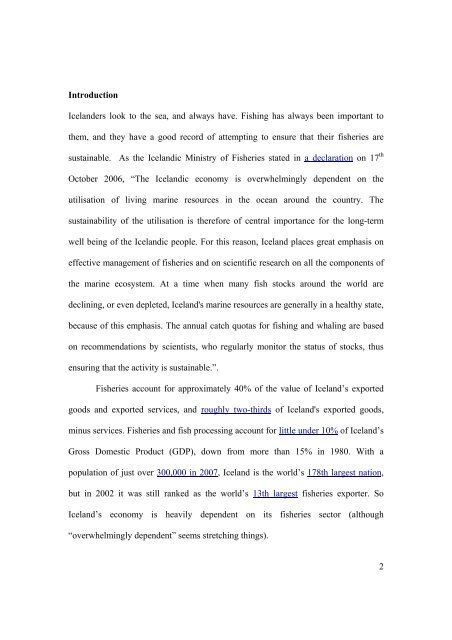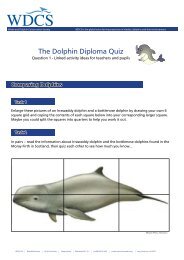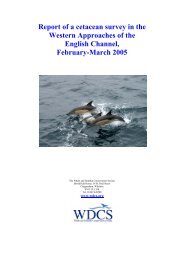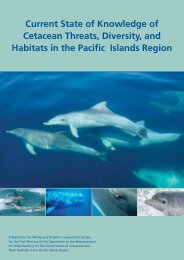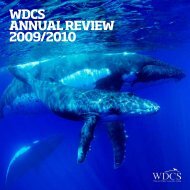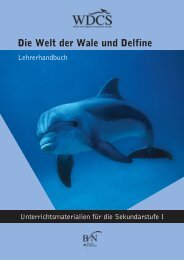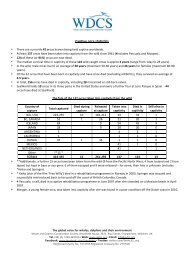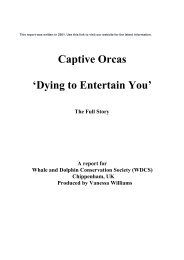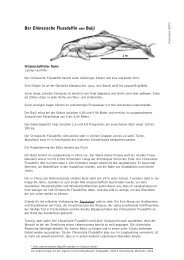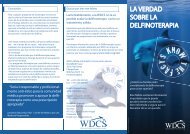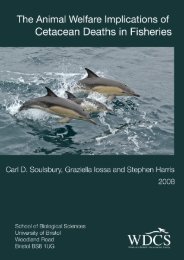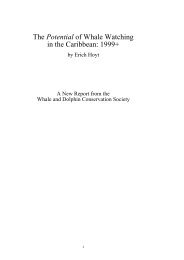ICELAND, - Whale and Dolphin Conservation Society
ICELAND, - Whale and Dolphin Conservation Society
ICELAND, - Whale and Dolphin Conservation Society
Create successful ePaper yourself
Turn your PDF publications into a flip-book with our unique Google optimized e-Paper software.
Introduction<br />
Icel<strong>and</strong>ers look to the sea, <strong>and</strong> always have. Fishing has always been important to<br />
them, <strong>and</strong> they have a good record of attempting to ensure that their fisheries are<br />
sustainable. As the Icel<strong>and</strong>ic Ministry of Fisheries stated in a declaration on 17 th<br />
October 2006, “The Icel<strong>and</strong>ic economy is overwhelmingly dependent on the<br />
utilisation of living marine resources in the ocean around the country. The<br />
sustainability of the utilisation is therefore of central importance for the long-term<br />
well being of the Icel<strong>and</strong>ic people. For this reason, Icel<strong>and</strong> places great emphasis on<br />
effective management of fisheries <strong>and</strong> on scientific research on all the components of<br />
the marine ecosystem. At a time when many fish stocks around the world are<br />
declining, or even depleted, Icel<strong>and</strong>'s marine resources are generally in a healthy state,<br />
because of this emphasis. The annual catch quotas for fishing <strong>and</strong> whaling are based<br />
on recommendations by scientists, who regularly monitor the status of stocks, thus<br />
ensuring that the activity is sustainable.”.<br />
Fisheries account for approximately 40% of the value of Icel<strong>and</strong>’s exported<br />
goods <strong>and</strong> exported services, <strong>and</strong> roughly two-thirds of Icel<strong>and</strong>'s exported goods,<br />
minus services. Fisheries <strong>and</strong> fish processing account for little under 10% of Icel<strong>and</strong>’s<br />
Gross Domestic Product (GDP), down from more than 15% in 1980. With a<br />
population of just over 300,000 in 2007, Icel<strong>and</strong> is the world’s 178th largest nation,<br />
but in 2002 it was still ranked as the world’s 13th largest fisheries exporter. So<br />
Icel<strong>and</strong>’s economy is heavily dependent on its fisheries sector (although<br />
“overwhelmingly dependent” seems stretching things).<br />
2


